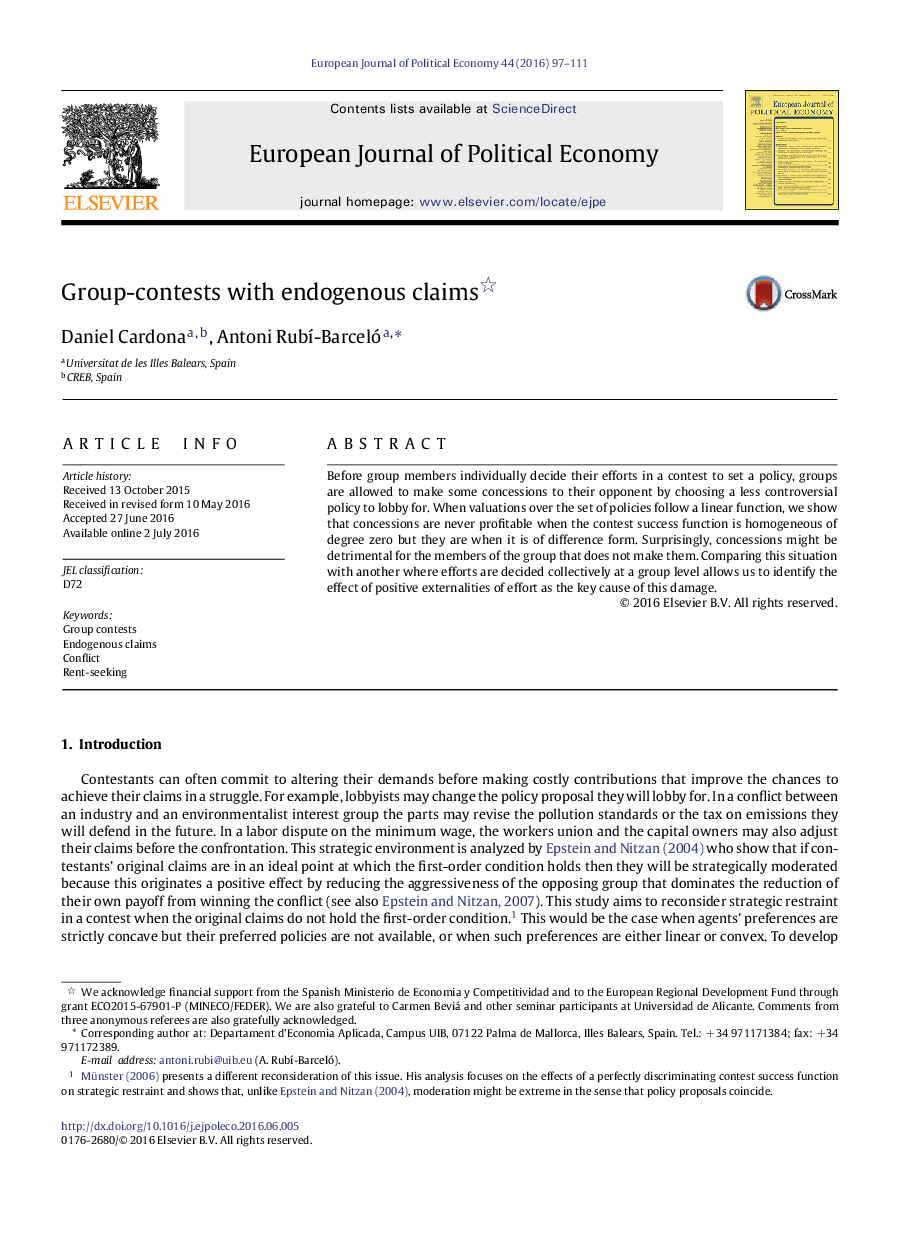| Article ID | Journal | Published Year | Pages | File Type |
|---|---|---|---|---|
| 5067871 | European Journal of Political Economy | 2016 | 15 Pages |
â¢We analyze some factors affecting strategic restraint in contests and its payoff implications.â¢These factors are preferences linearity, contest success function and agents' coordination to select efforts.â¢Agents do never moderate their claims when the contest success function is homogeneous of degree zero.â¢The small group might moderate their claims under the difference-form contest success function.â¢This moderation might harm the big group only under an homogeneous contest success function.
Before group members individually decide their efforts in a contest to set a policy, groups are allowed to make some concessions to their opponent by choosing a less controversial policy to lobby for. When valuations over the set of policies follow a linear function, we show that concessions are never profitable when the contest success function is homogeneous of degree zero but they are when it is of difference form. Surprisingly, concessions might be detrimental for the members of the group that does not make them. Comparing this situation with another where efforts are decided collectively at a group level allows us to identify the effect of positive externalities of effort as the key cause of this damage.
